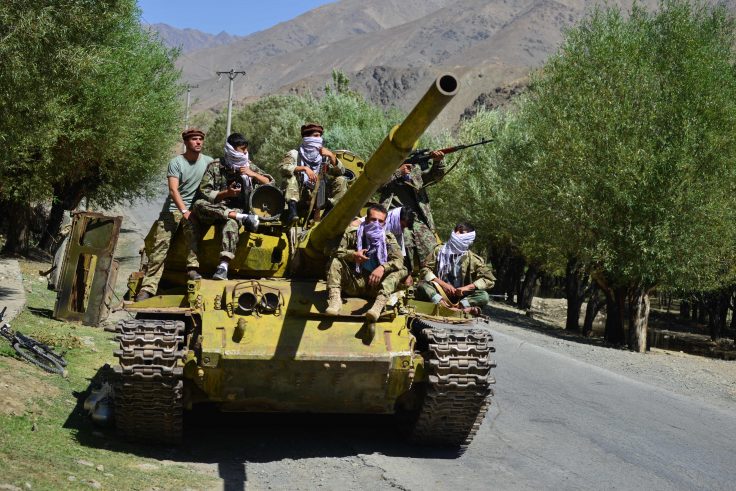The Taliban has shut off internet access in the Afghan province home to anti-Taliban resistance fighters.
The jihadist group cut off internet and telecommunications access in the Panjshir Valley, according to the BBC and a congressional source in touch with resistance fighters. Anti-Taliban forces have gathered in Panjshir, the last region of Afghanistan not under Taliban control. Without internet access, resistance fighters could struggle to organize their efforts and communicate with the outside world. It was unclear as of Monday afternoon how the Taliban cut off access.
The Panjshir crackdown shows the Taliban's increasing use of technology to centralize power. The jihadist group relied on Twitter and WhatsApp as it captured Kabul earlier this month. Blocking internet access would mimic the Cuban regime, which shuttered access to social media in June amid widespread protests. American officials have argued in favor of developing tools that would enable the United States to provide internet access in authoritarian countries.
The Taliban likely does not have the ability to institute a Chinese-style internet firewall in Afghanistan, and the internet is still accessible elsewhere in the country. Residents of Kabul have been able to access social media as usual. But families of Panjshir Valley residents confirmed they had not been able to reach them in the past week.
Experts worry the Taliban will attempt to impose restrictions on the internet once they secure power. Taliban leaders met with officials at the Afghanistan Telecommunications Regulatory Authority last week, ostensibly to ensure stable internet access would continue. But Mohammad Najeeb Azizi, the agency's former chairman, said, "The internet is under threat in Afghanistan." Azizi suggested the Taliban might seek to limit political dissent on the internet by banning certain content.
But some observers say Afghanistan could lose internet access entirely. The Taliban has destroyed dozens of cell towers in recent months. One of Afghanistan's biggest internet providers, South Africa’s MTN Group, announced it will wind down its operations in Afghanistan. The Taliban may not be able to pay for the fiber optic cables that connect Afghanistan to the rest of the world, according to Doug Madory, the director of internet analysis at network observation company Kentik.
The Panjshir Valley’s mountainous terrain has arrested Taliban advances and made it a natural base for resistance efforts. The resistance is "fighting for the whole of Afghanistan and not just one province," according to a spokesman for resistance leader Ahmad Massoud. "We are concerned about the rights of Afghans, women, and minorities," the spokesman said. Former Afghan vice president Amrullah Saleh is also in the Panjshir Valley and has declared himself the country’s caretaker president.
